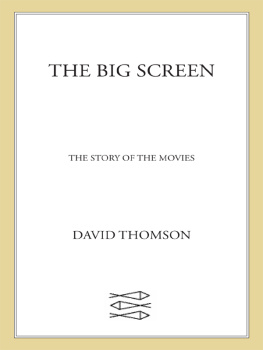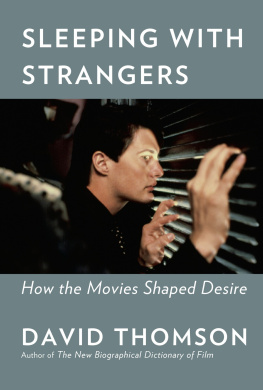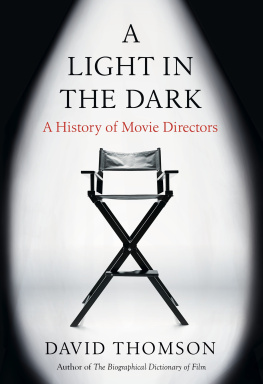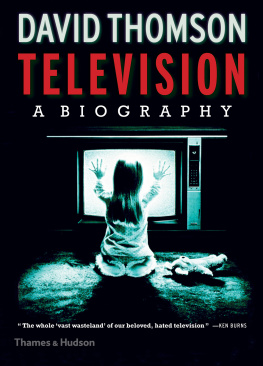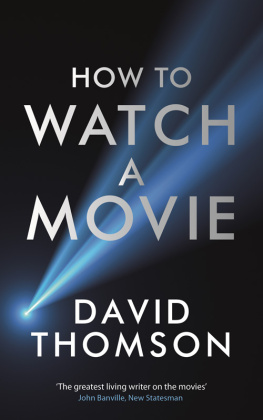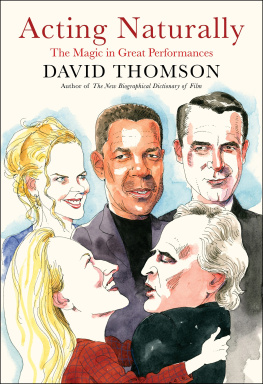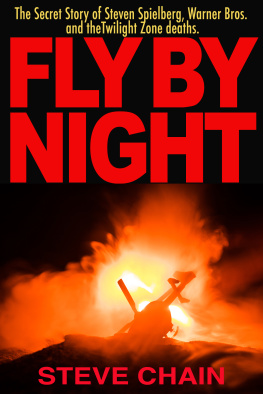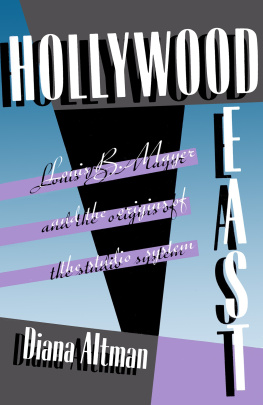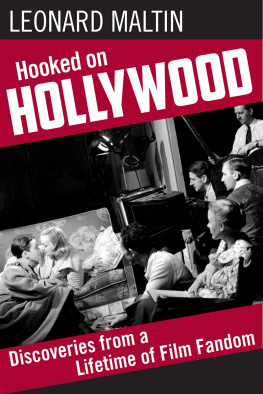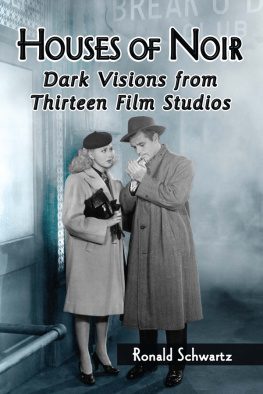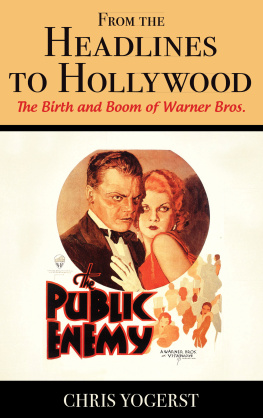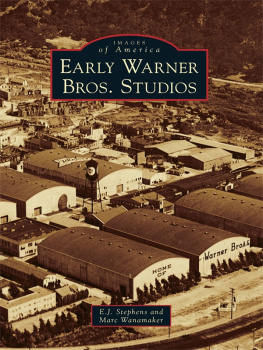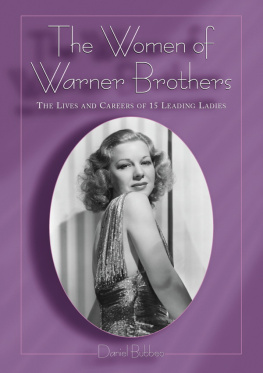WARNER BROS

James Cagney, 1938part dancer, part boxer; from wisecrack to break your facethe essential Warners actor and the sweetest guy on the lot
Warner Bros
The Making of an American Movie Studio

DAVID THOMSON

Copyright 2017 by David Thomson.
All rights reserved.
This book may not be reproduced, in whole or in part, including illustrations, in any form (beyond that copying permitted by Sections 107 and 108 of the U.S. Copyright Law and except by reviewers for the public press), without written permission from the publishers.
Yale University Press books may be purchased in quantity for educational, business, or promotional use. For information, please e-mail (U.K. office).
Set in Janson Oldstyle type by Integrated Publishing Solutions.
Printed in the United States of America.
Library of Congress Control Number: 2016956162
ISBN 978-0-300-19760-0 (hardcover : alk. paper)
eISBN: 978-0-300-23133-5
A catalogue record for this book is available from the British Library.
This paper meets the requirements of ANSI/NISO Z39.48-1992
(Permanence of Paper).
10 9 8 7 6 5 4 3 2 1
For Sam Hamm, who gave Warner Bros a boost in its declining years
For Michael Barker, who did the same for me
For Chuck JonesWhats up, Doc?who treated us all
1
An Introduction: Families and Stories
FAMILIES ARE ALIKE, whatever they say. They start to talk, to gossip or complain, and soon that turns into stories; we have to do that much, or sit there in silence. The narratives that spring up want to be unique and personal, but they are leaves from one tree. There are only a few stories if we regard them as shapes made out of possibility, rites of fear and desire. This condition lasted mankind from the cave to the cabin, but then story itself took flight. A few families broke into the business of enacting those stories for strangersaudiences who might be far away, but the new technology reached them. The stories existed as coiled celluloid, waiting to be freed by light. This one family, the Warners, helped create that business and left us believing that their stories were our fables and dreams, and not just their money and their made-up name.
This book is called Warner Bros, but if anyone asks, youre going to say youre reading Warner Brothers. You dont quite know how to say Warner Bros. That logo seems awkward or compacted in the mouth. This is not a trivial distinction between sound and print, family and business identity. They didnt call themselves Paramount or Universal or Columbia, names from out of the clouds. No, they said theirs was a family show, just the brothers, one for all and all for one.
There really were four Warner brothers, and if Albert was a sleeping or sleepy partner, Harry, Sam, and Jack are genuine characters. Sam takes an early hit for the team, and that makes him a beloved hero, but Harry and Jack carry the load of lifelong rivalry, like Karamazov brothers, vectors to build a story arc on. They fall into unthinking opposition. Why do we have siblings? they wonderSo theres someone close to us who is not us?
Jack wins this fraternal struggleyoull guess that early on, so no suspense is spoiled. But so many of his victories feel like defeats, too, because of his suspect character. Hes known as a rascal now, while Harry seems upright and duty-bound. Harry could read and write in Hebrew, while Jack struggled with English. But its too late to take sides: Harry may have been more honest, but he was dull, too; and if Jack was shifty, that was why you shouldnt take your eyes off him. The two of them seem always at odds, which leaves victorious Jack as maybe the biggest scumbag ever to get into a Jewish Lives series. I realize scumbag is startling: it doesnt sound judicious; and it may be disconcerting to have a Jewish Life that isnt admirable, or couched in integrity. Einstein, Freud, Proust, Primo Levi, Kafka, Emma Goldman... Jack Warner? But this subject is more important than respectability.
I said scumbag for a couple of reasonsJack is something other than a nobleman; but scumbag is a familiar term in the movie business, where it carries more affection than if it were being bandied about in insurance or undertaking. Hollywood, you see, is fond of its rascals, rather in the way we relish its villains or tough guys on screen when they are people we would be scared to meet. And that hints at the complicated influence the Warner brothers had, and are still having, on us. Heres a question to illustrate that: which means the most to the most people, or to you: the Special Theory of Relativity, Freuds The Interpretation of Dreams, or Jimmy Cagney pushing a grapefruit in Mae Clarkes face?
I cannot tell you Jack was a hero, or that many who knew him made that claim on his behalf. But being less than Einstein, Proust, or even Barbra Streisand didnt stop Jack and Warner Bros from having an impact on our culture and dreams, on us, that is alarming because its enormous. Warner Bros was one of the enterprises that helped us see there might be an American dream out there, a mix of patriotism and publicity, and it was open to Poles, Hispanics, the British and Chinese, whomever, as much as to the few Americans who had been here from the start. Even women might get it. That sense of a dream and immigrantsenormous, impersonal, climatic forcesis not easily worked out because we are still so attached to the hope that fine and talented people shape our history. Or very bad people? Dont rule this out as simple heresy, but America might have been happier without the pursuit of happiness.
Once upon a time, nearly everyone lived in his or her small, fixed place. You could not get away, so you hardly felt the needyou were contained in the power of heaven and hell, or some such script. Then transport shook us up. It began as railways, steamships, and automobiles, as well as money. It has gone on by way of the telephone and radio to our modern capacity or fantasy for being anywhere. But this transition has been a convulsion; it has driven people crazy and it means we lost godliness, as well as home.
This was happening all over the world, but in the United States the throb of fiction or future becoming was a frenzy as, in the last decades of the nineteenth century, millions of strangers came to the country and complicated its old New England ideals. That immigrant anxiety, over feeling freed yet lost, has never gone away, but in America a mass medium was set up, for fun but as a version of moral guidance and comfort: the stories told people how to live, or what to believe instay a family, they sometimes urged. But the technology was dynamic and disruptive, too: it catered to loneliness, instability, and escape and said such things were as natural as home and allegiance. The messages strove to be wholesome, and conservative, but families like the Warners had escaped, so they loved the dangerous energy that needed. The contradictions were riotousfor example, crime does not pay, they said, but get ready to enjoy these hoodlums of ours! And in that process these men represented all immigrants. They were storytellers who dramatized the vitality of instability and transformation. They were the actors who played the role of strangers in the land. And, dont forget, some true Americans still look upon immigrants with suspicion and fear.
Next page

